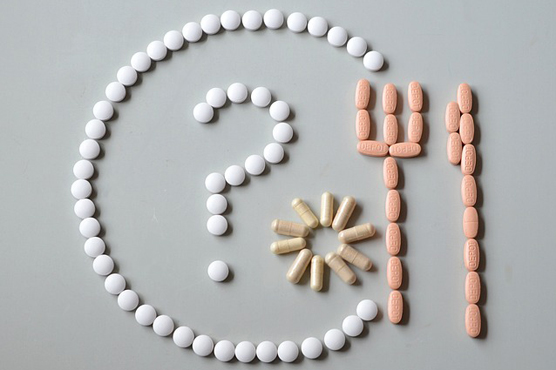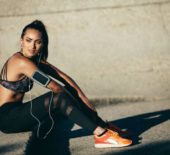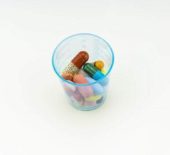Have you been one of many fooled to believe supplements are the answer to good health? If so you are not alone as the amount of advertising and money to sell supplements is phenomenal.
Firstly, supplements can be needed if prescribed by your GP after deficiency has been identified and supplementing this deficiency through whole food is not possible. Supplements can also be needed during stages of life such as folate during pregnancy or if you follow a vegan diet as B12 is only found in animal products. However, if you are blindly taking everything on the pharmacy shelf because it claims to help your health you may not only be wasting your money but taking these supplements may actually harm your health.
The World Cancer Research Fund recommends no one takes supplements if they wish to reduce the risk of cancer. Specific supplements which have growing evidence that they may be doing more harm than good. Two examples of this are:
- Vitamin E. Doses above 800 IU/day have been linked with increasing your risk of cardiovascular disease.
- Vitamin C. There is conflicting evidence to take vitamin C supplements to prevent or reduce your risk of heart disease, it may be wise to use whole foods and save the risk and the money.
On top of this there is a higher risk of overdosing on supplements causing them to become toxic. This is especially true for the fat soluble vitamins A, D, E and K as they can be stored in your body. Overdosing on these vitamins can cause a range of illness and body malfunctions from damage to organs right up to death. When you eat a whole food the vitamins and minerals in that food are generally at a lower level or you need to eat a lot of that food for it to become toxic.
So what is the solution? Taking food in its whole form gives you more than just a vitamin or mineral but a myriad of beneficial parts which scientists do not fully understand yet. An example is iron, it comes in both animal called haem iron and non-haem or non-animal forms. For your body to use and absorb the iron in non-animal forms it is best done with vitamin C. Foods like spinach and broccoli already set you up for success as they contain both non haem iron and vitamin C which helps your body absorb the iron.
Whole foods, specifically fruits and vegetables also have further properties to protect your health which include antioxidants which help reduce the damage from the environment on your body. A supplement is unable to provide such a complex number of benefits in a single capsule. It is a similar analogy to breast milk not being able to be manufactured and replicated the way the body can. Nature really does know how to keep our bodies healthy.
References:
- McMichael AJ. Food, nutrition, physical activity and cancer prevention. Authoritative report from World Cancer Research Fund provides global update. Public Health Nutrition. 2008;11(7):762-3.
- Eidelman RS, Hollar D, Hebert PR et al. Randomized trials of vitamin E in the treatment and prevention of cardiovascular disease. Arch Intern Med 2004; 164: 1552–6.
- Vivekananthan DP, Penn MS, Sapp SK et al. Use of antioxidant vitamins for the prevention of cardiovascular disease: meta-analysis of randomised trials. Lancet 2003; 361: 2017–23
- Eidelman RS, Hollar D, Hebert PR et al. Randomized trials of vitamin E in the treatment and prevention of cardiovascular disease. Arch Intern Med 2004; 164: 1552–6







